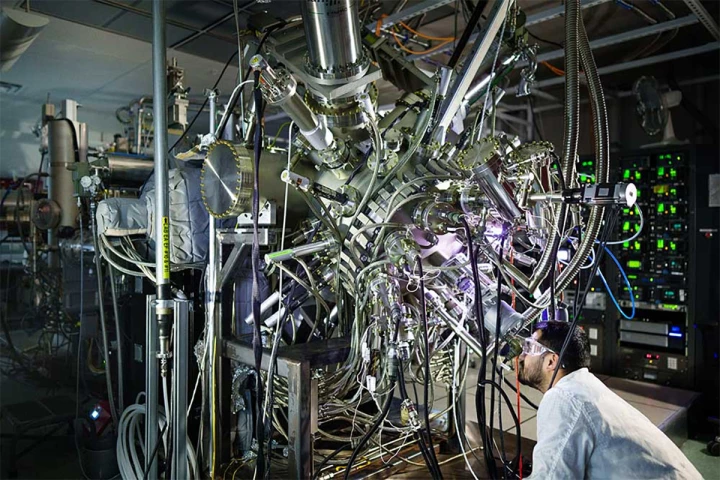University of New Mexico
-
Under specific conditions, lasers can cool things down – and that might just be what we need to tackle way-too-toasty data centers. A new technology called laser-based photonic cooling can target tiny hotspots on chips to zap heat away.
-
By now, you've no doubt heard that modern living is filling our bodies with microplastics. But an alarming study now shows just how much of the non-degradable particles are in our brains, and how much higher they are in dementia patients.
-
Researchers have created synthetic red blood cells that have all of the useful properties of the real thing, plus a few new tricks. These new cells could be put to work carrying oxygen or drugs through the body, sensing toxins, and other tasks.
-
Scientists have developed what they describe as a vaccine to keep the brain clear of clumps of tau proteins associated with Alzheimer’s, and found that treating mice in this way helped stave off the kind of memory decline associated with the disease.
-
Asteroids are the leftovers from the formation of the solar system, and they can tell us a lot about those early years. Now scientists have studied a weird space rock and found that it’s the oldest known igneous meteorite, dating back to one of the very first volcanic eruptions in the solar system.
-
Supermassive black holes lie at the center of most galaxies, but 750 million light-years away, 0402+379 boasts two of them – and one appears to be orbiting the other. The discovery is the result of 12 years of observation, marking the first time the phenomenon has been directly seen.
-
Thanks to movies, we probably all have the same mental picture of the terrifying T Rex, but new research reveals they had a sensitive side. The discovery of a new related species shows their snouts were as sensitive as our fingertips, to help them build nests and nuzzle their young.
-
Capturing carbon emissions at the source is an important weapon in the fight against climate change. Now scientists have developed an efficient low-cost technique that makes use of an ultra-thin membrane, like a bubble, to filter CO2 out of flue gas.
-
Researchers have developed a cheap vaccine that reduces cholesterol levels in animals, suggesting a cheap and effective way to prevent dangerously high levels in humans mightn't be so far away.








